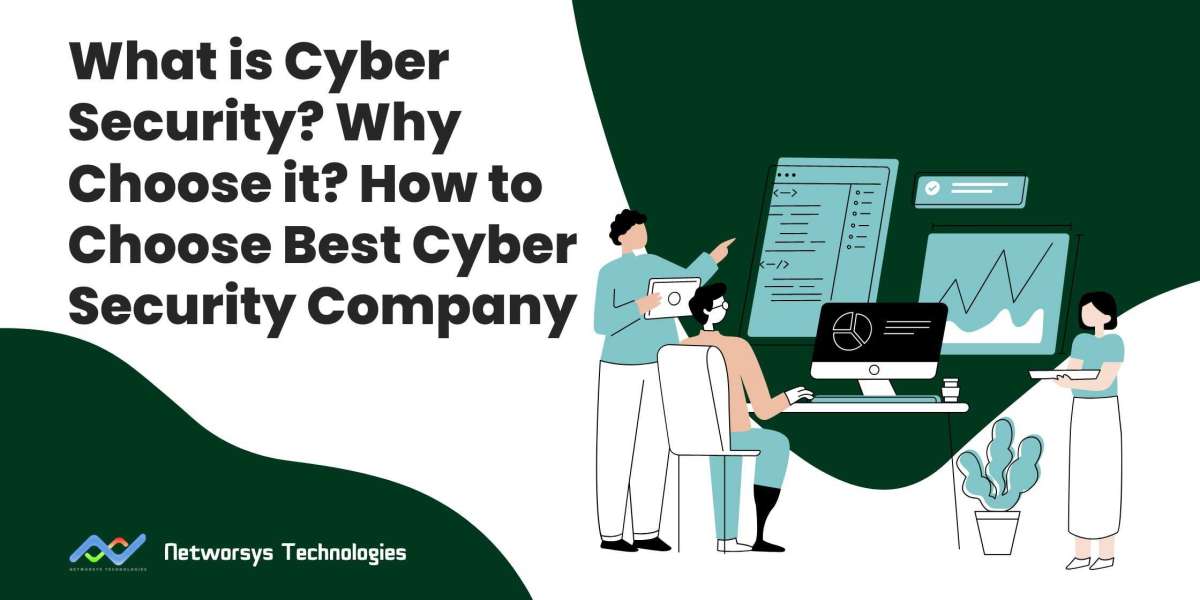In an increasingly digital world, the importance of cyber security cannot be overstated. With the exponential growth in internet users and digital data, protecting sensitive information from cyber threats has become a critical concern for individuals and organizations alike. This blog delves into the essence of cyber security, explores why it is crucial, and provides guidance on selecting the best cyber security company to safeguard your digital assets.
What is Cyber Security?
Cyber security refers to the practice of defending computers, servers, mobile devices, electronic systems, networks, and data from malicious attacks. It encompasses a variety of measures and technologies designed to protect the integrity, confidentiality, and availability of information. Cyber security is essential in preventing unauthorized access, data breaches, and other forms of cybercrime.
Key Components of Cyber Security
- Network Security: Protects the integrity of networks and data as it is transmitted across or between networks.
- Application Security: Focuses on keeping software and devices free of threats. A compromised application could provide access to the data it is designed to protect.
- Information Security: Protects the integrity and privacy of data, both in storage and in transit.
- Operational Security: Includes the processes and decisions for handling and protecting data assets. This covers permissions users have when accessing a network and the procedures that determine how and where data may be stored or shared.
- End-User Education: Addresses the most unpredictable cyber-security factor: people. Anyone can accidentally introduce a virus into an otherwise secure system by failing to follow good security practices.
Common Cyber Threats
- Malware: Malicious software such as viruses, ransomware, and spyware.
- Phishing: Fraudulent attempts to obtain sensitive information by disguising as a trustworthy entity.
- Man-in-the-Middle Attacks: Interceptions of communication between two parties.
- Denial of Service Attacks: Flooding a network or system with traffic to exhaust resources and make it unavailable to users.
- SQL Injection: Inserting malicious SQL code into a server to access its data.
- Zero-Day Exploits: Attacks that occur on the same day a vulnerability is discovered in software.
Why Choose Cyber Security?
In the modern digital landscape, the need for robust cyber security measures is more pressing than ever. Here are some compelling reasons to prioritize cyber security:
Protection of Sensitive Data
Organizations and individuals handle vast amounts of sensitive data, including personal information, financial records, and proprietary business data. Cyber security measures are essential to protect this data from unauthorized access and breaches.
Prevention of Financial Loss
Cyber attacks can lead to significant financial losses. Ransomware attacks, for instance, can cripple businesses by locking access to critical systems until a ransom is paid. Effective cyber security helps prevent such costly incidents.
Safeguarding Reputation
A data breach can severely damage an organization’s reputation. Customers and partners need to trust that their data is secure. A robust cyber security framework helps maintain this trust and prevents reputational damage.
Compliance with Regulations
Many industries are subject to strict regulations regarding data protection. Compliance with these regulations is not only a legal requirement but also a best practice to ensure data security and privacy. Cyber security ensures adherence to such standards.
Business Continuity
Cyber attacks can disrupt business operations, leading to downtime and loss of productivity. Implementing strong cyber security measures ensures business continuity and resilience in the face of cyber threats.
Protection Against Evolving Threats
Cyber threats are constantly evolving. New vulnerabilities and attack vectors are discovered regularly. A proactive cyber security strategy helps organizations stay ahead of these threats and adapt to new challenges.
How to Choose the Best Cyber Security Company
Selecting the right cyber security company is crucial for ensuring your digital assets are protected effectively. Here are some key considerations to help you make an informed decision:
Assess Your Needs
Before choosing a cyber security company, it is essential to understand your specific needs. Identify the assets you need to protect, the type of threats you are most vulnerable to, and your overall security goals. This will help you choose a company that specializes in the areas most relevant to your requirements.
Evaluate Expertise and Experience
Look for a company with a proven track record in cyber security. Check their experience in handling threats similar to those you face. Experienced companies are likely to have encountered a wide range of security challenges and can provide effective solutions.
Review Services Offered
Cyber security companies offer a variety of services, including:
- Threat Detection and Response: Identifying and mitigating cyber threats in real-time.
- Penetration Testing: Simulating attacks to identify vulnerabilities in your system.
- Security Audits and Assessments: Evaluating your current security posture and identifying areas for improvement.
- Managed Security Services: Providing ongoing monitoring and management of your security infrastructure.
- Incident Response: Assisting in the event of a security breach to minimize damage and restore systems.
Ensure the company you choose offers the services that align with your needs.
Check Certifications and Standards
Certifications and adherence to industry standards are indicators of a company’s commitment to best practices in cyber security. Look for certifications such as ISO 27001, CISSP, and CISM, which demonstrate expertise and reliability.
Analyze Their Technology
The effectiveness of a cyber security company depends significantly on the technology they use. Ensure they leverage advanced tools and technologies such as artificial intelligence, machine learning, and threat intelligence to stay ahead of cyber threats.
Consider Customer Support
Responsive and effective customer support is vital in the event of a security incident. Ensure the company offers robust support, including 24/7 availability, to assist you whenever needed.
Evaluate Cost
While cost should not be the sole determining factor, it is important to find a company that offers a balance between cost and quality. Obtain detailed pricing information and understand what is included in their services. Ensure there are no hidden fees and that the pricing structure aligns with your budget.
Read Reviews and Testimonials
Research the company’s reputation by reading customer reviews and testimonials. This can provide insights into their reliability, quality of service, and customer satisfaction.
Request a Consultation
Many cyber security companies offer a free consultation. Use this opportunity to discuss your needs, ask questions, and evaluate their approach to your specific security challenges. This interaction can help you gauge their expertise and professionalism.
Look for a Long-Term Partnership
Cyber security is an ongoing process that requires continuous monitoring and updating. Choose a company that is willing to build a long-term partnership, providing consistent support and adapting to your evolving security needs.
Conclusion
Cyber security is an essential component of the modern digital landscape. Protecting sensitive data, preventing financial loss, safeguarding reputation, ensuring regulatory compliance, maintaining business continuity, and staying ahead of evolving threats are compelling reasons to prioritize cyber security.
Selecting the right cyber security company involves assessing your specific needs, evaluating expertise and experience, reviewing services offered, checking certifications and standards, analyzing technology, considering customer support, evaluating cost, reading reviews and testimonials, requesting consultations, and looking for a long-term partnership.












